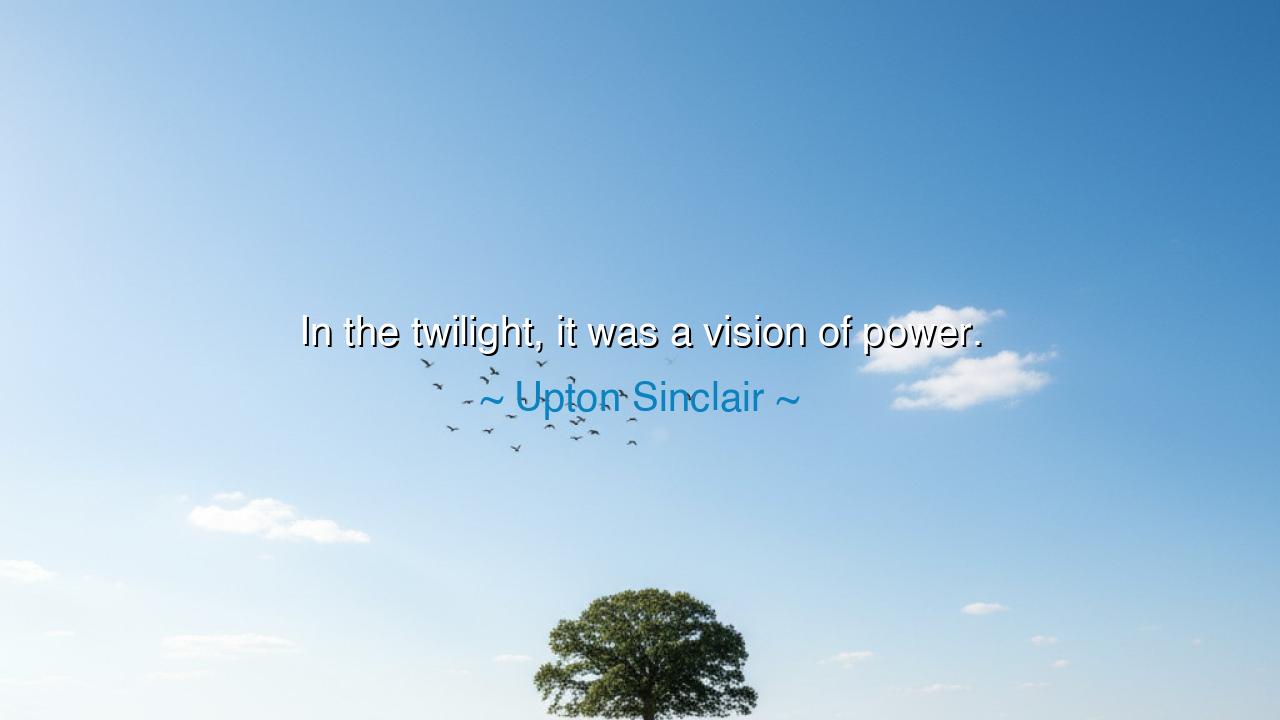
In the twilight, it was a vision of power.






The words of Upton Sinclair, “In the twilight, it was a vision of power,” ring with the voice of one who beheld majesty where others saw only fading light. The twilight, that mysterious hour between day and night, has ever been a symbol of transformation—an end and a beginning woven together. To Sinclair, in this shifting veil, there emerged not weakness nor decline, but a spectacle of strength, a vision of power revealed in the stillness of change.
For twilight is no mere dimming of the sun. It is the hour when shadows grow long, when forms are magnified, when the world appears at once fragile and vast. In such moments, what is ordinary takes on grandeur, and what is hidden in full light becomes visible in half-darkness. Sinclair, who often wrote of the struggles of labor and the might of industry, may have seen in twilight the image of forces larger than men—the rise of movements, the weight of machines, the eternal surge of life itself.
History reminds us how often greatness is revealed in twilight hours. At Marathon, when the sun sank and the Persians believed victory theirs, the Greeks rose with renewed strength, striking as shadows lengthened, and their valor became a vision of enduring power. So too, in the twilight of the Roman Empire, when decay seemed certain, the vision of Christian faith arose, carrying a force that would outlast the legions and emperors. What seemed to be an ending became instead the unveiling of new strength.
Sinclair’s words also whisper of the paradox of power—that it is not always seen in the noonday of triumph, but often in the dusk of struggle. The worker returning home weary, the soldier standing firm in the last light, the reformer pressing on though the age seems dark—these are twilight visions, radiant not because of ease, but because of endurance. The half-light reveals not only strength, but the soul’s defiance against decline.
Therefore, let this wisdom be remembered: do not despise the twilight, for in it are born the most powerful visions. When the day wanes and shadows fall, it is then that the true essence of strength is seen—not the blinding force of noon, but the enduring glow that survives into the night. Sinclair’s words remind us that even as light fades, the spirit of power can rise, majestic, unyielding, eternal.






AAdministratorAdministrator
Welcome, honored guests. Please leave a comment, we will respond soon